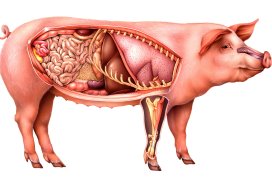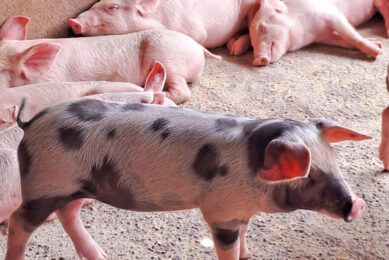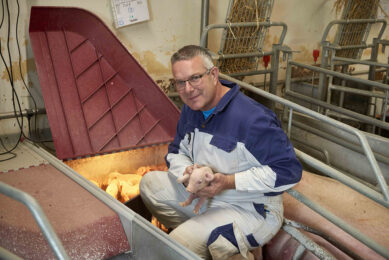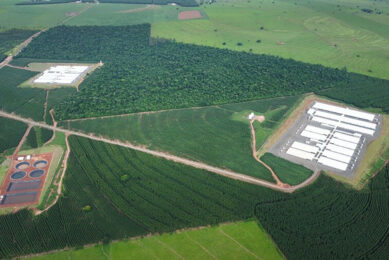Genetics help to step up resistance to PRRS and App

A genetic approach may well hold the key to make pigs better prepared for disease challenges. That was one of the main take-home messages of the recent International Pig Veterinary Society (IPVS) Congress, held 11-14 June in Chongqing, China.
At the congress, results were presented around both Porcine Reproductive and Respiratory Syndrome (PRRS) virus, as well as Actinobacillus pleuropneumoniae, a well-known bacteria causing respiratory disease in pigs. With genetic techniques increasingly becoming more sophisticated, strategies to breed (more) resistant pigs appear to come within reach as well.
PRRS: Genome editing can help
As the IPVS Congress was integrated with the 2018 International PRRS Symposium, quite a lot of presentations focused on how to find better solutions on how to deal with PRRS. In the context of gene editing, Christine Burkard of the Roslin Institute and Royal (Dick) School of Veterinary Studies, University of Edinburgh, UK, gave a very insightful presentation about the different degrees of reaction pigs can have towards a pathogen – from being susceptible to resistant.

Read more on pig health in the Pig Progress Health Tool
Delving deep into the porcine genome, she then touched on the gene ‘CD163’, which is associated with resistance to PRRS. In her keynote lecture, she said, “CD163 has been described as a fusion receptor for PRRSv.”
No loss of biological functions
Dr Burkard’s team aimed to figure out how to edit this gene – while making sure that the gene does not lose its biological function. They managed to do so, taking out domain 5 (SRCR5) of the gene. The team stated that in vitro, resistance to PRRSv-1 and PRRSv-2 has both been shown; in vivo, the resistance has been shown in PRRSv-1, subtype 2.

Dr Burkard and her team, including researchers from Iowa State University, Genus and the Warsaw University of Life Sciences, stated that the pigs without ‘SRCR5’ are fully resistant to infection and there is no virus shedding. In addition, the pigs are non-transgenic, she said.
She added, “This research shows that genome editing opens new opportunities for next-generation breeding for virus-resistance in livestock and eradication of disease.”
App: Finding genetic markers for resistance
Not only with regard to PRRS, genetics may prove the way forward. Serious steps have also been made in this respect to overcome respiratory disease related to the bacteria Actinobacillus pleuropneumoniae. In an oral presentation, Dr Doris Höltig, of the University of Veterinary Medicine in Hanover, Germany, presented the most recent results of the project PleuroRes.
Read more news from the IPVS Congress in Chongqing – on African Swine Fever moving west and PRRS complexity in China
This project aims to identify genetic markers for resistance to pleuropneumonia in a commercial German Landrace breed. In the study of the presentation, which also included researchers from the German Justus-Liebig-University and the Technical University Munich, 165 pigs were used. In total the team managed to find 3 candidate genes.
Gene markers for less App susceptibility
Dr Höltig concluded, “Within this study gene markers for a genetic selection of pigs less susceptible to porcine pleuropneumonia have been developed and the genetic background for the host’s susceptibility was confirmed. As favourable gene variants are segregating in commercial populations further work is needed to investigate prevalence of favourable and unfavourable gene variants in different breeds and populations and to verify the results of this study.”
 Beheer
Beheer








 WP Admin
WP Admin  Bewerk bericht
Bewerk bericht